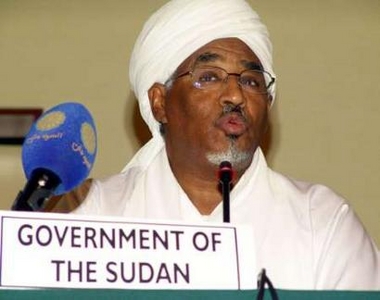|
Sudan, Darfur rebels end latest talks
(AP)
Updated: 2005-10-21 10:00
Sudan's government and rebels ended a sixth round of talks on the crisis in
the country's western Darfur region Thursday, announcing no agreements but
pledging to reconvene in a month to push forward the slow-moving peace process.
Fighting between two rebel factions, which splintered earlier this year from
the main Sudan Liberation Army, complicated more than a month of talks in
Nigeria's capital, Abuja. The sides agreed to meet again Nov. 21 in Abuja.
"I don't name it failure and I don't call it a success," said government
negotiator Yusuf Abdallah adding that he was encouraged by a sense of optimism
among participants but found progress slow.
The parties signed a statement saying "some progress was made" in discussions
over human rights and power-sharing at the national and local levels.
"We are conscious of the urgent need to give our people respite from their
long suffering," the parties said.

Sudan's government representative Mohamed
Yusif Abdallah speaks at Darfur peace talks in the Nigerian capital of
Abuja October 20, 2005. [Reuters] | "Reasonable
and acceptable" progress was made, particularly over power-sharing and human
rights issues, said Ahmed Tugod, leader of a delegation of the smaller of the
two rebel groups, the Justice and Equality Movement. He gave no further details.
Violence in Darfur spiked while negotiators met, including rebel attacks on
army outposts and African Union peacekeepers and government and militia raids on
villages and refugee camps.
Expressing "deep concern at the deteriorating security situation in Darfur,"
the African Union Thursday extended the mandate of its 6,700 troops in Sudan. A
statement did not say for how long the troops would remain. Their initial
one-year mandate of the AU mission expired Thursday.
After decades of low-level clashes over land and water in Darfur, rebels
launched a large-scale conflict in early 2003, accusing the Arab-dominated
central government of neglecting ethnic African tribes. The central government
is accused of responding by sending Arab tribal militias, known as the
Janjaweed, to murder and rape civilians and lay waste to villages. The
government denies backing the Janjaweed.
The chaos has left at least 180,000 people dead from hunger and disease and
forced 2 million to flee their homes. There are no firm estimates of the number
of people killed in fighting and Janjaweed attacks.
On Wednesday, the United Nations said violence was hindering food and relief
aid to tens of thousands of people and forcing more Sudanese into already
crammed refugee camps.
|